6. Bury My Heart at Wounded Knee (Yves Simoneau, 2007)
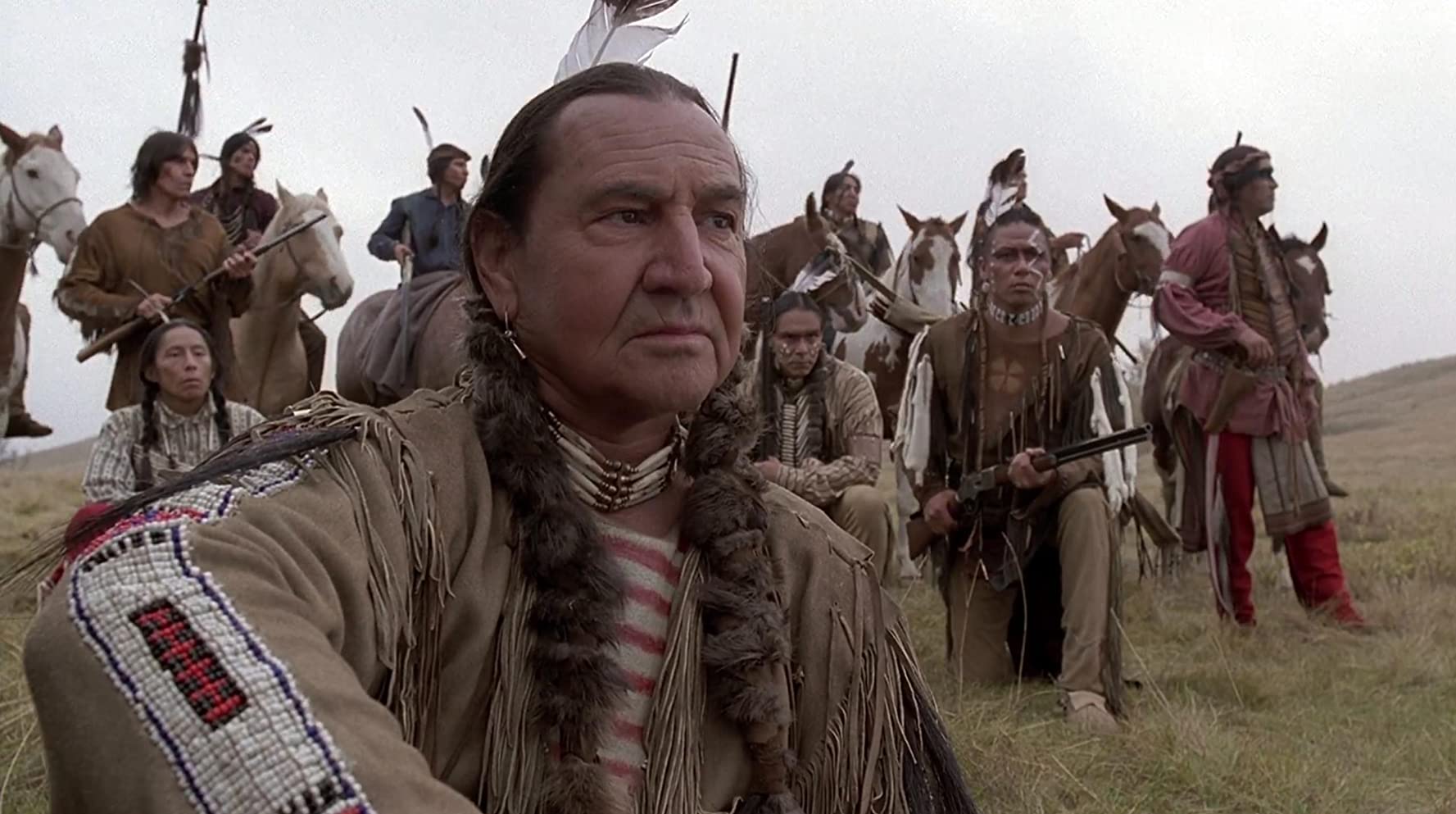
Bury My Heart at Wounded Knee is a 2007 television film released by HBO. Directed by Quebecois filmmaker Yves Simoneau, Bury My Heart at Wounded Knee is based on a successful book of the same name that was released in the 1970’s. The film roughly focuses on the period of history between the Battle of Little Bighorn in 1876 and the creation of the Dawes Act in 1887, a time when the Lakota Sioux Native Americans were forced to abandon their traditional lands and assimilate to white Christian society.
Bury My Heart at Wounded Knee focuses on four characters based on true historical figures who played important roles in the happenings of the time: The Lakota leaders Sitting Bull and Red Cloud, Charles Eastman who worked as a physician on Sioux reservations and later dedicated his life to protecting Native American rights, and U.S Senator Harry L. Dawes whose Dawes Act of 1887 took land rights and other powers away from Native Americans across the country. Through these four different perspectives, Bury My Heart at Wounded Knee gives an accurate and tragic portrayal of what Native Americans faced during these years of immense transition when they were forced to make difficult compromises with the U.S government and leave much of their old lives behind.
Upon release, Bury My Heart at Wounded Knee garnered much critical success, even receiving attention at the Emmy, Golden Globe, and Screen Actors Guild Awards. The film boasts the great performances of recognizable Native American and First Nations actors such as August Schellenberg, Wes Studi, and Adam Beach. As unfavorable periods of American history are often ignored in popular culture, Bury My Heart at Wounded Knee gives great justice in showcasing the marginalization of Native Americans and how they have been treated in the United States historically. Entertaining but also enlightening, Bury My Heart at Wounded Knee is an Amazon Prime must see.
7. Down the Fence (MJ Isakson, 2017)
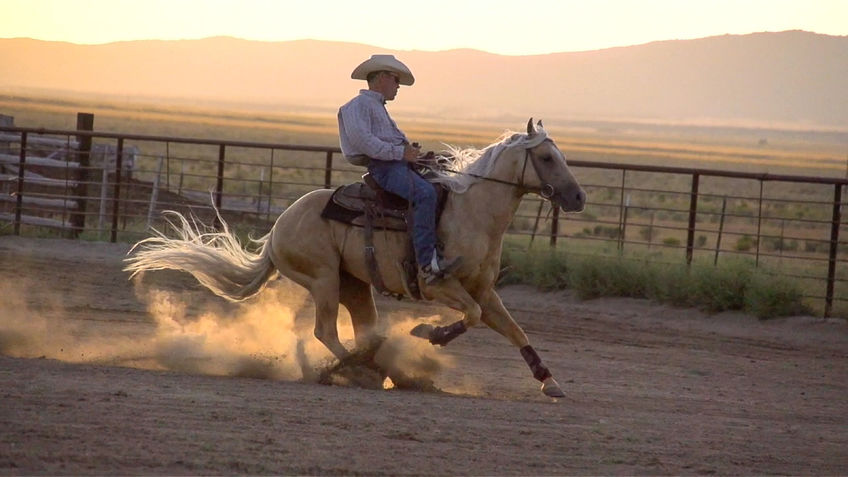
Down the Fence is a 2017 documentary feature directed by MJ Isakson that observes the western horseback riding competition known as reining, a sport which finds its roots in the cattle driving traditions of the Western Frontier. Down the Line focuses on the sport’s deeper connections between human and animal as well as the reining world’s connections to the historical past of the American West.
Down the Fence uses documentary footage filmed over the course of a year or so in the lives of three different horse people on the journey to the National Reined Cow Horse Association’s Snaffle Bit Futurity, a high-profile competition within the world of reigning. The documentary’s three subjects represent two men and a woman from different parts of America with different backgrounds in the horse industry competing for different purposes, highlighting the diversity of the sport of reining even within a small competitive community.
For many viewers who may lack familiarity with the horse sport of reining, Down the Fence does a proficient job with providing the background information needed to understand what is happening throughout the documentary. The director succeeds in showcasing the relationship between horse and rider, a communication between man and animal that has been historically important since the Western Frontier was first settled in the late-eighteenth century.
In a contemporary world that has long forgotten the necessity of horses, Down the Fence and its subjects emote an honest affection for the traditions of cattle horses, keeping the western tradition alive even today. At times faltering due to heavy-handed editing, but overall a satisfying documentary that can appeal to both horse fans or those interested in the heritage of the American West, Down the Line is a great documentary to be viewed on Amazon Prime.
8. The Dark Valley (Andreas Prochaskas, 2014)
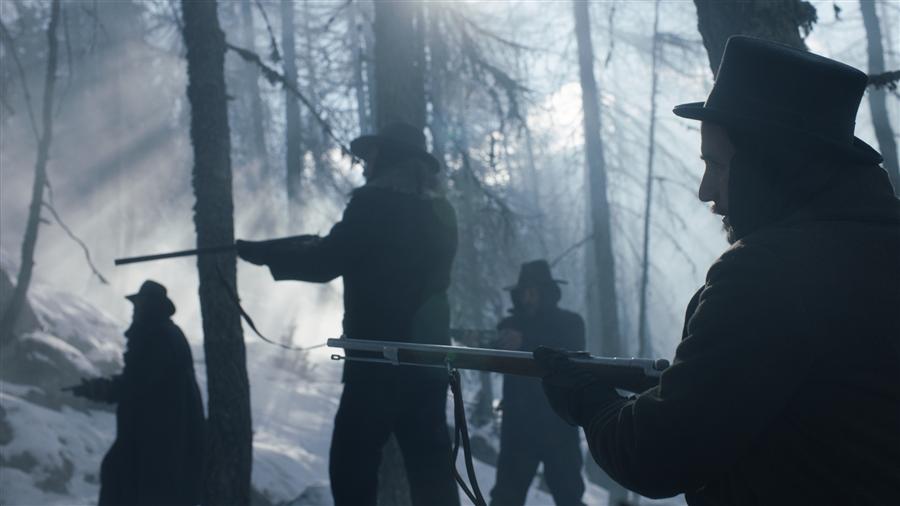
The Dark Valley is a 2014 German Western directed by Andreas Prochaskas. Relocating a traditional tale from the American West to the Austrian Alps, Dark Valley stars Sam Riley as Mr. Grieder, a mysterious American who travels to an isolated mountain town in Europe to seek revenge on happenings from his dark past.
Sometime in the distant past, Mr. Grieder arrives in a picturesque snowy mountain town in the Alps claiming to be a photographer. Upon arrival, Grieder quickly learns that the village is defiled with exploitation under the crushing influence of a family of men known as the Brenner Brothers. As the townspeople pressure Grieder to leave the corrupt village while he still can, Grieder discovers the dreadful truth behind the Brenner Brother’s and their jurisdiction over the town. As The Dark Valley pushes forward, the audience learns of Grieder’s motivations in seeking revenge through flashbacks to piece together the atrocities of Grieder’s past.
By no means is The Dark Valley the perfect film — the overuse of voiceover and sequences of overwrought, exaggerated violence can be distracting during the film’s climactic second half. The themes of revenge in The Dark Valley may align with motifs found in traditional Westerns, but the film works in no way to create a fresh, new narrative. However, for true fans of Westerns The Dark Valley does present an interesting European perspective on the sub-genre that is little-explored in other filmmaking. The Dark Valley may not be the greatest Western film available to stream on Amazon Prime, but it is an intriguing take on the genre that some viewers may appreciate.
9. Brimstone (Martin Koolhoven, 2017)
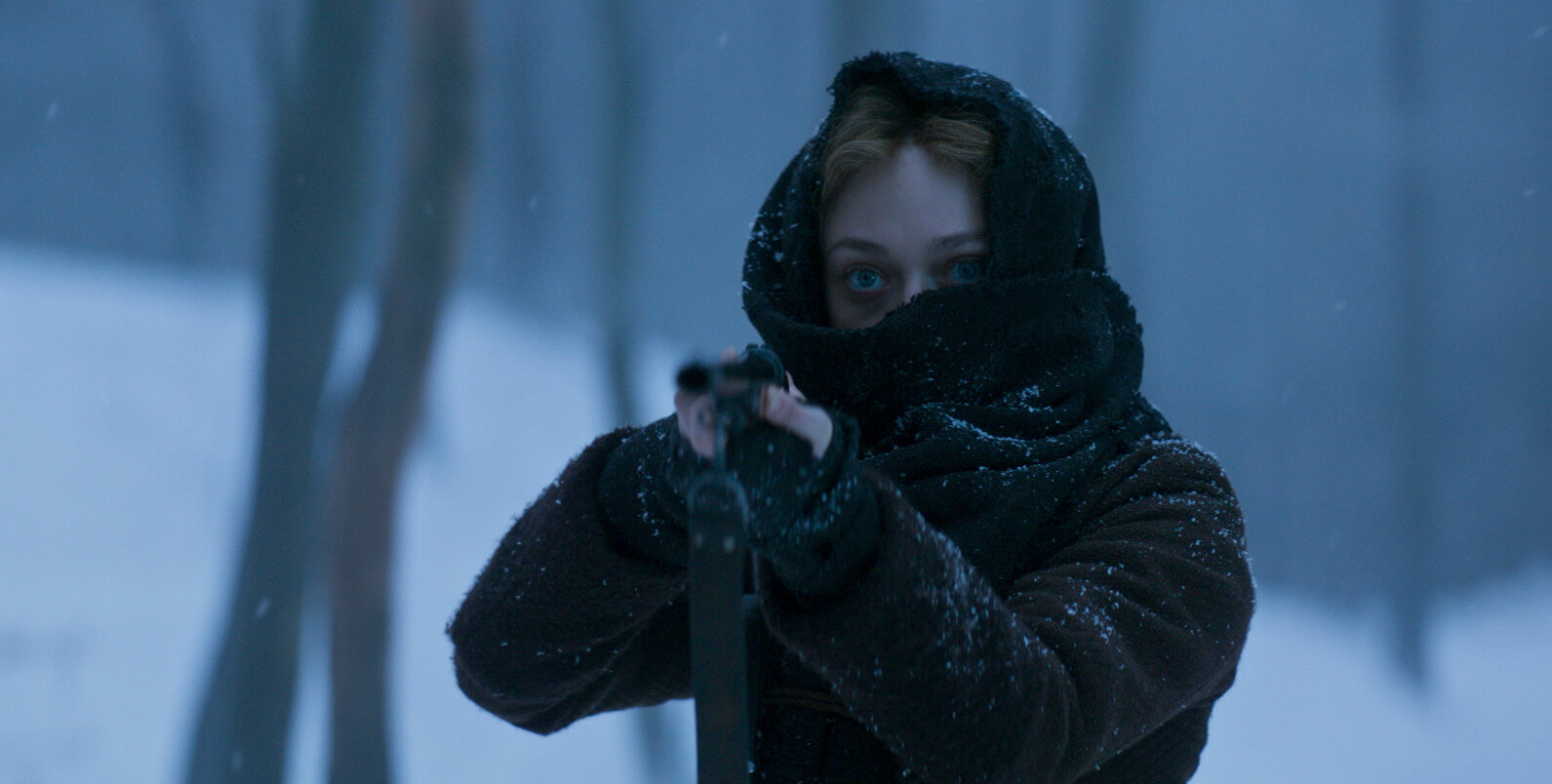
Brimstone is a 2017 Euro-Western released by Dutch filmmaker Martin Koolhoven. A sprawling and provocative film starring Hollywood heavyweights Dakota Fanning, Guy Pierce, and Kit Harington, Brimstone centers around a young woman in the Old West whose tranquil life is shattered when an ominous minister comes into town.
Fanning stars as Liz, a young mute woman who serves as a midwife in the small settlement where she lives. One Sunday at church, Liz becomes physically and emotionally distressed when a mysterious new minister, Guy Pierce’s character, is introduced to the congregation. At the end of the new Reverend’s sermon, a pregnant church member goes into labor and Liz is forced to make the severe decision between saving the mother or child when the delivery goes wrong. That night, the Reverend shows up at Liz’s family home to tell her she is guilty of murder and must be punished. From this intense beginning, Brimstone only becomes more extreme as the film unfolds in an anachronic order to piece together a story of sweeping violence, injustice, and darkness.
Without a doubt, Brimstone is an ambitious take on the Western that works in deeply provocative ways to explore and subvert thematic elements exemplary of the genre. The film’s name alone invokes references to the wrath of God, with Christianity and Manifest Destiny being major contributing factors in the historical settlement of the American West.
Brimstone interestingly explores the portrayal of women in the American West. Women have been traditionally objectified in Westerns through representations of prostitutes and “damsels in distress”, and Brimstone confronts these stereotypes and their misogynist roots. To be surely warned, Brimstone is most definitely a fierce and brutal modern Western that asks many ambitious questions which the film does not always answer. However, this film and its fresh female point-of-view does offer a compelling perspective on the Western genre. Brimstone is a fascinating film that Western fans should see on Amazon Prime.
10. Sweet Country ( Warwick Thornton, 2018)
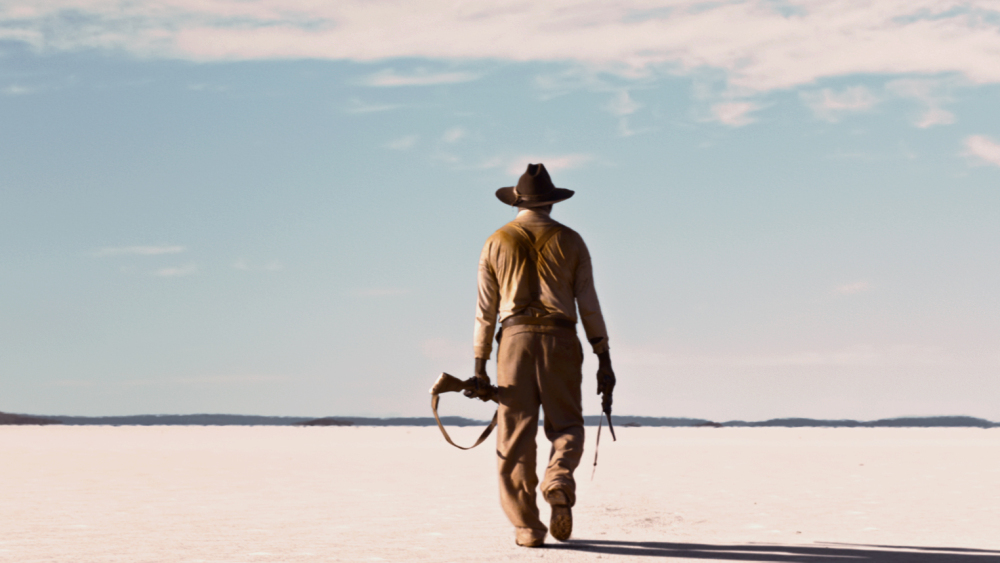
Australian director Warwick Thornton’s film Sweet Country was released in 2018. Met with universal acclaim upon its release, Sweet Country is well-known for winning the Platform Prize at Toronto Film Festival. An Outback Western that evokes an Australia of the past, Sweet Country is a powerful film that highlights the darkness of Australia’s colonial history.
Taking place in the Australian Outback following World War I, Sweet Country centers around an Aboriginal farmer named Sam Kelley. When Sam finds himself in mortal danger during a confrontation with an unstable neighboring farmer, he shoots the white man to protect his family. As law making and social attitudes towards Aboriginals during the early-twentieth century were unjustly prejudiced, Sam and his family are forced to flee into the Australian Bush to avoid punishment for killing the white farmer, even though it was self-defense.
Sweet Country is an incredible film possessing powerful criticisms of colonialism that are not only relevant in the film’s early-twentieth century setting but also in contemporary times. The film’s structure and themes truly align themselves with those of the Revisionist Western, condemning the structures of white European power which have negatively affected and displaced indigenous cultures around the world.
Sweet Country’s hero Sam at first glance may diverge from traditional notions of the western hero, but ultimately his perspective provides the film with a moral centrality based in honesty and the goodness of living, because that is how Sam chooses to live regardless of the tragic circumstance his life has bound him to. While Sweet Country is a Western that takes the viewer far away from the traditional landscapes of the American West, the film is an amazing contemporary accomplishment for the Western genre and should be seen and appreciated by anyone scrolling through Amazon Prime.